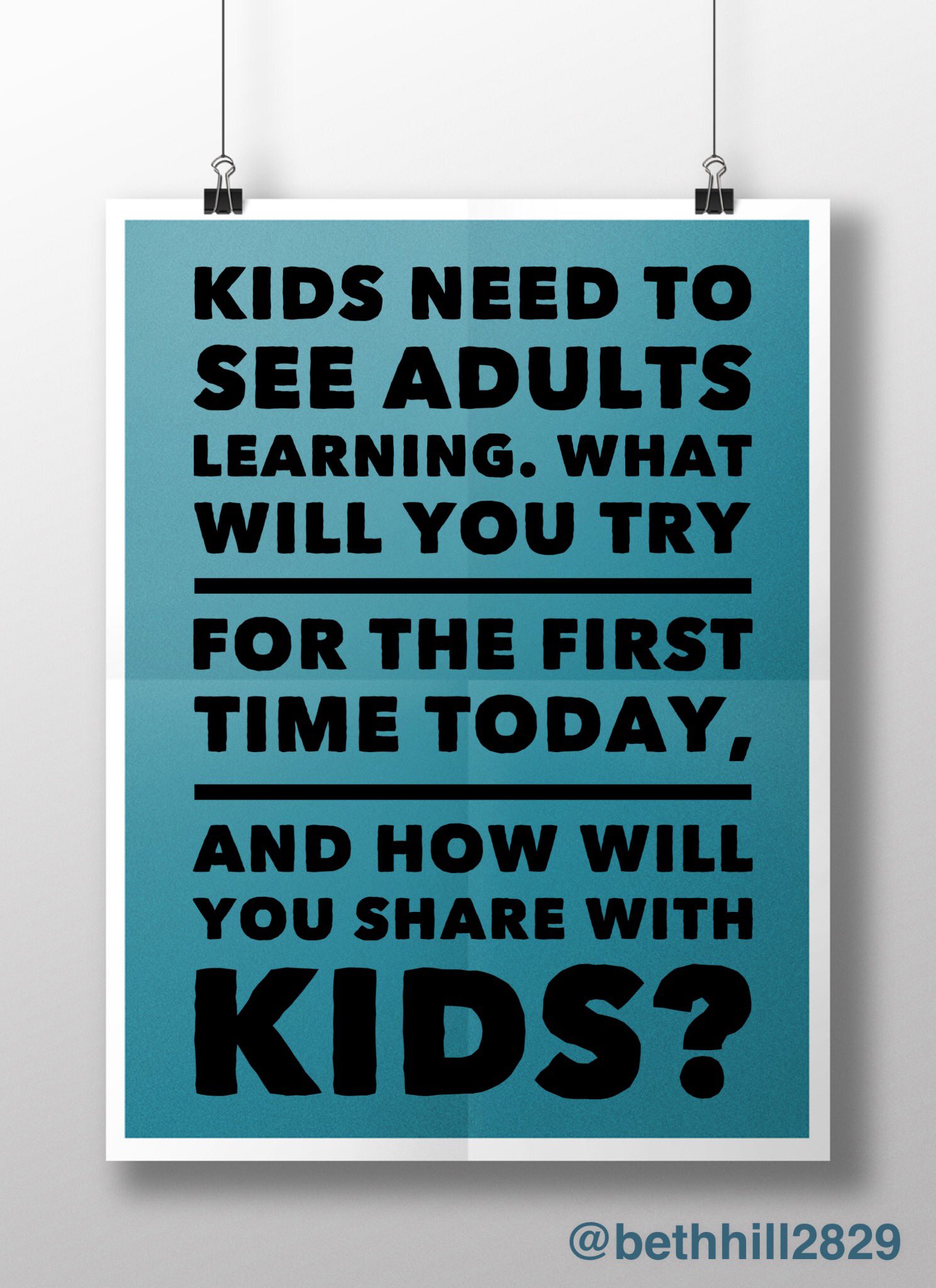In Are Our Schools Fostering Lifelong Teacher Learners? (from Tech & Learning) Adam Schoenbart, a High School English teacher, asserts that what's best for students-- choice, passion, curiosity-- should be the same for adult learners.
Adam says, "I want to work in, teach in, and learn in schools where learning is the culture and language of what goes on every day. A school that create conditions where leaders and participants continually develop a shared depth of understanding about the nature of the work."
The staff at WJHS continually strives to develop a learning culture.
How?
First of all, as you know from The Wildcat Way Defined post, Ongoing Learning is one of our CORE values.
As a leader, I personally strive to constantly model lifelong learning by sharing the thoughts and ideas that I gain from professional reading and daily interactions with my professional learning network.
We've also created a robust Teachers Visiting Teachers (TVT) program. Within our TVT system, we schedule learning walks where groups of teachers visit multiple classrooms during a class period and then debrief about what we saw.
Today, we had our first learning walk of the year.
Participants were: Cheryl Cox, Shelly O'Dell, Blake Cook, Tim Sparacino, Bryan Hale, & Kandi Cowart (not pictured).
We've also created a Flipboard magazine called "WJHS Learns" that provides our teachers with "one click" access to professional reading material.
We by no means have arrived...but we are striving to be a model school for professional learning.
Our basic message to our staff is described in the two images below:
Another critical component of lifelong learning is experimentation. It is absolutely essential that learners feel free to fail as they implement innovative practices.
Our staff embraces the concept of "I blew it!" We know that innovation does not occur without multiple attempts and rarely proceeds failure. Each of our staff members receives an "I blew it!" card and each faculty meeting contains an "I blew it!" segment where we share and celebrate our failures.
In conclusion, if we desire and expect our students to love learning and become lifelong seekers of knowledge, we must model that behavior for them and share our journey with them.
What are you learning? How are you learning it? Do your students know?

Tim Sparacino, Principal



